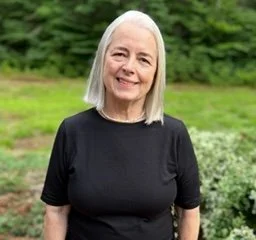Saturday, September 24, 2022
Beginner’s Hebrew
Kathryn Mulhearn
Tuesday, October 11 - December 6, 2022 6:30 – 7:30 pm on Zoom
Instructor: Kathryn Mulhearn
Co-sponsored by Temple Israel Portsmouth, St John’s Portsmouth and Temple Beth Jacob Concord
For more information, contact templeoffice@templeisraelnh.org
I teach Biblical Hebrew grammar and reading courses at Temple Israel Portsmouth because I love reading the Bible in Hebrew. I know that most people who aspire to read the Old Testament find it boring, and put on the brakes when they hit the first instance of “begats” in Genesis 10:1, or the lists of sacrifices and laws in Leviticus. I admit that it took me a long time to learn to love the difficult texts, but I have also read and re-read them to step farther back and look in awe at ideas that unify our scriptures, like demands for justice for the poor, the widow, the orphan and the stranger residing in the land.
I also look at the Old Testament as a little library of highly varied texts, much of it poetry as in Psalms, Song of Songs and Isaiah; some passages portray more violence and cruelty than Game of Thrones, as in Judges and Isaiah. The longer books are libraries within libraries, containing myriad texts concerning justice, God talk, retribution, kitchen etiquette, magic and non-peaceful transfers of power.
Many people have commented that teaching Biblical Hebrew reading and grammar at a synagogue is an odd commitment for an Episcopalian. I caught the bug over 30 years ago when a priest I met at Diocesan Convention found out I was very interested in studying the Gospels, and pushed me to go to seminary. I began with a year of reading Old Testament, and got hooked. I stopped going to school and began my forever project of reading Hebrew scriptures. I studied Biblical Hebrew for seven years at Temple Israel, made some wonderful friends, and have been teaching Biblical and prayerbook Hebrew there for 15 years.
The Hebrew “aleph-bet” is the oldest alphabet in continuous use, and it has allowed me to become a time traveler, reading texts from different periods. One is the Mishnah, a fascinating collection of Jewish law and traditions compiled in 100 – 200 CE. It’s interesting to compare the social pressures under Roman rule described in the Mishnah with the parables of Jesus in the New Testament.
I have had many Hebrew students from St. John’s and Temple Israel, some from other religious backgrounds, some wanting to convert to Judaism, and others who are just curious about languages in general. For this meditation, I asked students to describe learning and reading Hebrew, and I received an overload of enthusiastic responses, including:
…exciting and mysterious;
I like the way the language works, its structure, vocabulary and history;
it’s an important part of my personal spiritual practice
learning to translate the ancient language connects me directly with the hands that put it on parchment thousands of years ago;
for me it was reading the prayers, learning the meaning of the thoughts being conveyed within the complexity of Hebrew words;
brings joy;
getting a better understanding of the foundation of my Christian religion;
I am intrigued by the different alphabet and have to concentrate to read “backwards”;
the spark I feel when I encounter a word and its meaning that I know only by rote from Hebrew liturgy is the reason I began and want to continue learning;
sometimes I wonder if I'm crazy to still be doing this;
I want to create more spaces in the world where holiness is experienced; ancient Hebrew helps to do that;
the letters are supposed to be the key to the functioning of the universe according to Kabbala;
it's fun. Sort of like a puzzle;
in one word, I would say “Complex.”
To these comments, I say Amen and Hallelujah, Hebrew words meaning truly and Praise the Lord, respectively.



